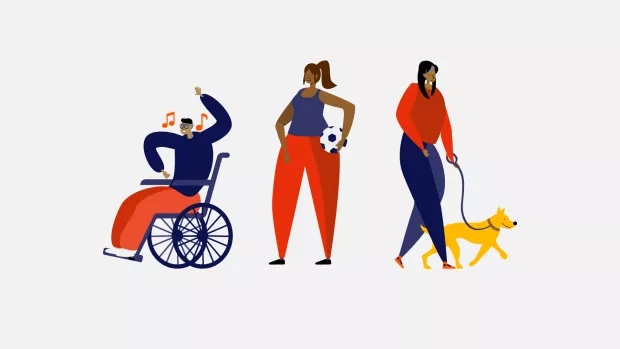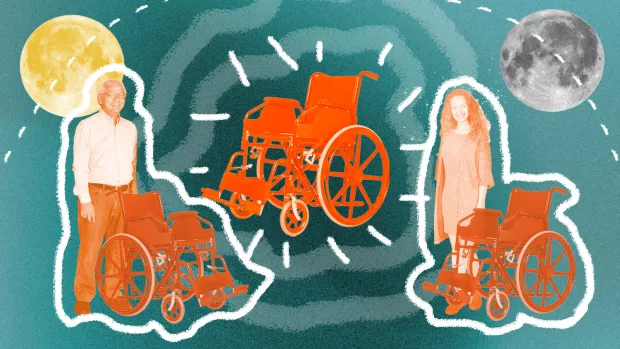
Living with progressive MS: Occupational therapy
Occupational therapy can make a world of difference to everyday life if you’re living with progressive MS. The hugely experienced occupational therapist Jenny Preston explains how.
Forty two years ago when I began to study occupational therapy I was constantly asked “what is occupational therapy?” Little did I know that after all this time I would still be asked the same question. But when I explain, I think you’ll agree it could be really helpful if you’re living with progressive MS.
What is occupational therapy?
Occupational therapy helps you overcome the impact MS has on your everyday life. An occupational therapist can be part of the multidisciplinary team in health or social care services. That’s a team of professionals with different skills and roles. Sometimes you might hear an occupational therapist referred to as an OT.
Occupational therapy is based on three key concepts to help us find the right support for you.
- You as a person – what matters to you, how you feel about things, and how you think about things.
- Your environment – where you live and work, the natural environment, and also culture and society.
- Your ‘occupations’ - this doesn’t just mean work. It’s a broad term for the things we do that bring meaning and purpose to our lives. It’s the things that bring us pleasure and joy. It’s the mundane chores and routines of everyday life. And it’s our hopes and aspirations.
How can an occupational therapist help?
However your MS affects you, an occupational therapist, will help you work out what’s most important to you. Then see how MS is helping or hindering you from doing that. And then figure out ways to work around that. Here are just three examples:
1. MS may cause you to have tremor in your hand. This makes it difficult for you to eat and drink. You don’t mind at home because nobody else sees you, or your family have become used to it. But you feel more aware of this when you go out to a restaurant. You may feel embarrassed and so you stop going out for dinner with your family and friends, even though you used to really enjoy this.
An occupational therapist can help you to manage this by suggesting different ways to support your arm and body. They might provide heavier cups and cutlery, or a weight to place around your wrist to help reduce the tremor.
2. You may find it difficult to use your keyboard for work or leisure because you’re finding it hard to move your fingers. An occupational therapist can make a bespoke splint to keep your hand in the best position. Before you know it you’re back to shopping online, surfing the net, or catching up with friends on social media.
3. MS can affect the way we think and remember things. So an occupational therapist might do some tests with you to help understand what kind of information is most helpful. Sometimes we remember things better if they are written down, or pictures might help. Often lists are helpful, and thank goodness for mobile phones with reminders.
How do I find an occupational therapist?
Most multidisciplinary teams supporting people with MS should include an occupational therapist. Your MS nurse or your GP can refer you. Or you can get in touch directly (‘self refer') through your local authority for occupational therapists who work in social care. You can use either route to get their support.
You should contact an occupational therapist as soon as you start to see changes in the way you do everyday things. Occupational therapists can often provide solutions early on and prevent you from having to stop doing the things that are important to you. Some occupational therapists are able to provide regular support as your MS changes.
Occupational therapists work in partnership with you to help find solutions, offer advice and provide assistance that’s right for you. Get in touch so we can help you.



